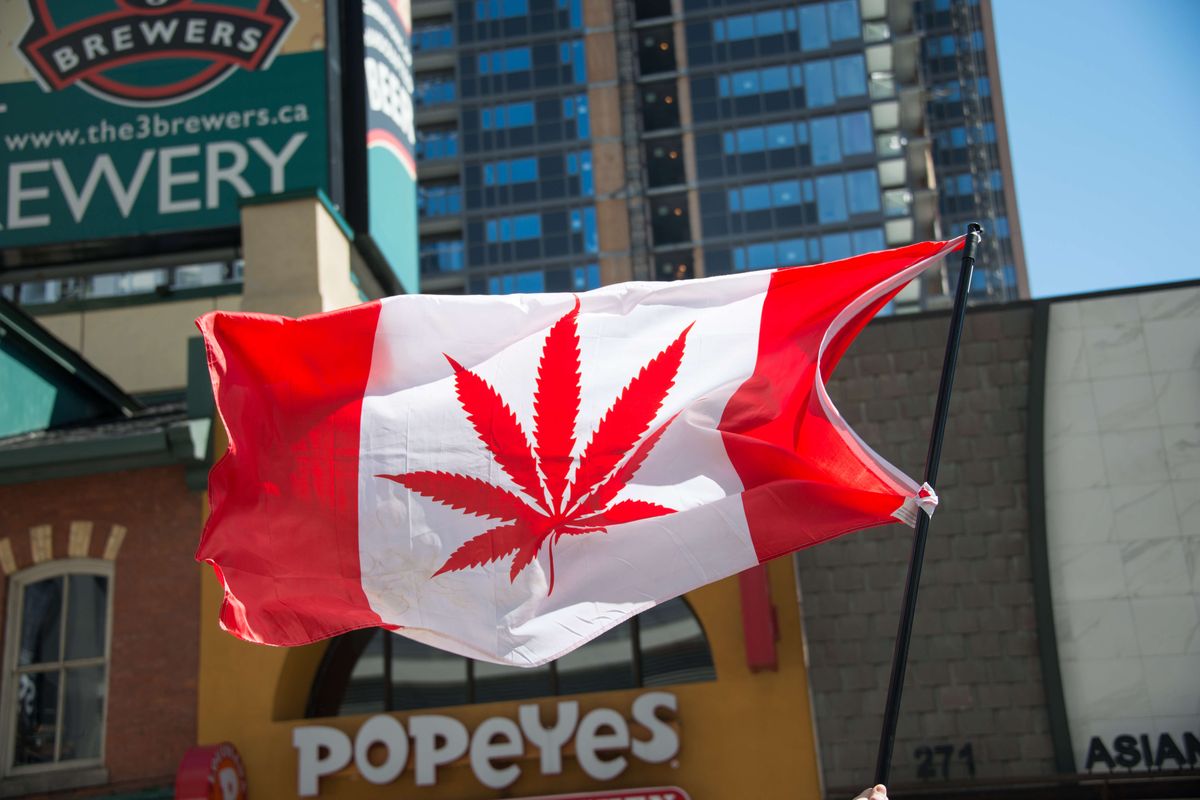‘Who on earth adds marijuana into maple syrup?’ Chinese consumers panic over Canadian legalization
‘Who on earth adds marijuana into maple syrup?’ Chinese consumers panic over Canadian legalization

On October 17, Canada became the largest country in the world to legalize recreational marijuana. While it’s still too soon to tell what kind of long-term impact the legalization may have on the country’s marijuana industry, the decision has already initiated a wave of panic in China, where customers are deeply concerned about getting stoned by mistakenly consuming THC-infused snacks brought from Canada.
The fear was triggered by a WeChat article (in Chinese) published on October 20 by 魔都囡 módūnān. Titled, “You can never imagine how Canada’s weed legalization will ruin millions of Chinese people’s lives!” (你绝对想不到加拿大的大麻合法化会坑掉多少中国人的一辈子!), the article first introduces weed as a kind of drug that is not as life-threatening as heroin, but is still capable of having detrimental effects on users’ brains and getting them addicted. It also warns readers that in China, weed use, possession, and cultivation are strictly illegal.
In the second part, the author, an ardent anti-pot crusader, unleashed a tirade against Canada’s marijuana legalization, making groundless accusations such as “Canadians’ minds were not in a right place when legalizing recreational marijuana,” “Canadian Prime Minister Justin Trudeau has done many wrong things,” and “It makes no sense to me that some Canadians were in a queue to purchase weed.”
Citing tourism data that suggest China is one of the largest sources of foreign visitors to Canada, the author went on alerting readers of the legal consequences stemming from accidently purchasing THC-infused snacks in Canada and bringing them home as gifts for friends. According to the author, dangerous foods include maple syrup, honey, gummy bears, chocolate bars, cookies, lollipops, ice cream, and cakes.
“Canadians’ minds are completely twisted. Who on earth adds marijuana into maple syrup? I can’t believe they just did it. Maybe for the purpose of getting higher when having food? Who knows?” the author wrote. “Okay, when you return home with these marijuana snacks. Sorry, stone-cold handcuffs are waiting for you!”
While there are some people on the Chinese internet defending the legalization, arguing that in the context of Canada, such a move can reduce criminality in the business of cannabis and help the government to impose quality controls, the overwhelming majority of internet users in China expressed deep concerns after reading the article and denounced recreational marijuana use as “fatal” and “despicable.”
“It’s none of our business that foreigners actively look for trouble,” one commenter wrote. “But bringing marijuana snacks to China should be explicitly outlawed!”
Even before the news of legalization, Canada has been drawing ire from the Chinese government for not doing enough to stem the flow of illegal cannabis to China from Canada. According to an internal federal memo leaked earlier this year, Chinese officials were “quietly grilling Canada about illicit marijuana flowing to their country, prompting Ottawa to agree to work with them on the problem.”






